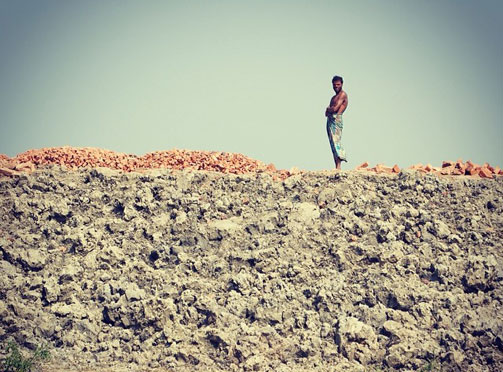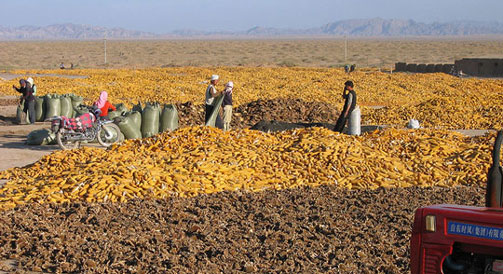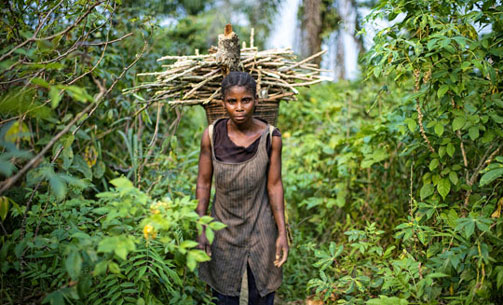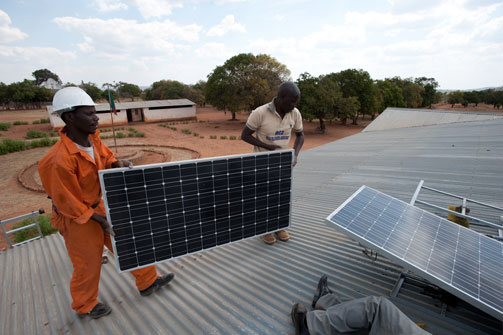We can hardly believe it, but it’s nearly the end of 2014. To mark the occasion, the STEPS Centre communications team has picked 12 of our favourite blog posts by STEPS members, one from each month of the year.
Choosing them has been a difficult task, as there’s been a lot to write about our work on building pathways to sustainability – from a 1970s workers’ movement that looked like it could change the face of British industry; ‘secret knowledge’ and funeral rites in Ebola-hit West Africa; accusations of paranoia around GM in China; what a 1940s Hungarian historian can tell us about global change in the 21st Century; to a transformative idea to break the stalemate of climate technology policy.
Here are our favourites. We hope you enjoy them, and we look forward to you joining our debates on the blog or at an event in 2015.
January: The Lucas Plan and socially useful production
A working paper by Adrian Smith, part of our Grassroots Innovation project, told the story of the ‘socially useful production’ movement in the 1970s and 80s. It includes the innovative Lucas Plan proposed by employees at the beleaguered manufacturer Lucas Aerospace, with lessons for debates on democratising technology today. To accompany the paper, a 1978 film about the Lucas Plan was also unearthed from the archives, with great interviews and footage of some of the prototypes invented by the workers.
February: Delhi Symposium: Exploring Pathways To Sustainability

Our 2014 Annual Symposium, ‘Exploring pathways to sustainability’, was co-organised with the Centre for Studies in Science Policy at Jawaharlal Nehru University in Delhi. The event gave rise to a flurry of ideas, resulting in 7 blogposts reflecting on storytelling, academia versus activism, grassroots innovation movements, the food-energy-water nexus, climate change politics, and urban sustainability. It was also the beginning of the new South Asia hub of our Global Pathways to Sustainability Consortium.
March: Scaling-up inclusive innovation: asking the right questions?
Adrian Smith discusses how innovation and democracy can talk to each other, and what this means for efforts to ‘scale up’ good ideas, in a thoughtful piece peppered with examples from Brazil, India and Europe.
April: Ebola in Guinea – people, patterns and puzzles

Amid a wave of distressing reports from West Africa, Melissa Leach looked at how the Ebola outbreak was represented in the media. What stories were not being told? Melissa, who has lived and worked in Guinea over many years, highlighted the neglected histories of poverty, environmental change and experiences of rural communities. This narrative forms part of our substantial research programme on animal-to-human diseases.
May: Learning from Great Transformations Past and Present
“If Polanyi were alive today, he would recognise our crisis-ridden, neoliberal moment all too well.” John Thompson discusses how Karl Polanyi’s challenging ideas on markets and states can inform debates about ‘sustainable transformations’ and how these transformations can be governed.
June – STEPS Summer School 2014

In a whirlwind review of our two-week Summer School, participant Elsie Khakasa captures the flavour of the diverse group involved, reflects on STEPS methodologies and ideas, and relives the activities that took place – from ‘walkshops’ in the countryside to a participant-led ‘conference’, social events and even a theme song. (You can still apply for next year).
July: Ebola: failures, flashpoints and focus
As Ebola continued to spread, Annie Wilkinson explored the role of rumour, perception and ‘secret knowledge’ in people’s responses to the disease in West Africa – as well as the importance of recognising local knowledge and cultural history.
August: GM in China: ‘Paranoia’ and public opinion

In August, biosafety certificates permitting Chinese researchers to grow genetically modified rice and corn expired before the crops could be commercialised. Why? Sam Geall took a detailed look at 4 possible reasons and explored how anti-GM movements in China link to wider concerns about food safety, agriculture and the environment. (You can explore more STEPS work on GM over the years in our Biotechnology Research Archive.)
September: ‘Innovation histories’: capturing legacy & learning from long-term programmes
Learning from experience is important, not least in tricky and complex areas like health systems. Innovation histories can offer a way to get beyond, or beneath, the official version of events, to probe the informal and the personal – as our partners in Future Health Systems found when looking back at a mobile health project in Bangladesh, as part of our work on health and disease.
October: Why gender equality and sustainable development are inextricably linked

A high-profile UN Women report launched in October, with STEPS-influenced inputs from STEPS members Lyla Mehta and Melissa Leach, showed the deep linkages between unsustainable patterns of development and gender inequality. In this blog post, Melissa Leach explained the links between gender and development, cited examples of positive alternatives and warned against simple stereotypes of women as ‘saviours’ or victims.
November: Innovation choices in the face of uncertainty
Choices about innovation are too often reduced to ‘either or’, with critics labelled as ‘anti-science’. But is this the only way? STEPS co-director Andy Stirling explored the case for more mature debate and more reasoned decision-making in his contribution to the volume of evidence and case studies which accompanied the UK Chief Scientist’s first ever annual report, Innovation: Managing risk not avoiding it.
December: National Systems of Innovation: UN climate technology policy takes a positive turn

UN support for climate-friendly technology in poor countries is largely seen as a problem of ‘hardware financing’. But the seeds of technology often fall on stony ground. David Ockwell, who coordinates our energy and climate change research, suggests an alternative approach: one which supports national systems of innovation, like fertile ‘gardens’ where new ideas and technologies can be nurtured and flourish.
Sign up to our newsletter
Found these articles interesting? To get more in 2015, subscribe to our newsletter.
Image credits
February: Living on the edge, quite literally by Jeff Knezovich (knezovjb) on Instagram
April: Health promotion, by CDC global on Flickr (cc-by-2.0)
June: Photo by Lukas Hermville
August: Maize and sunflower harvest Chahaertan by dfataustralianaid on Flickr (cc-by-2.0)
October: Portraits of a woman, Lukolela, Democratic Republic of Congo, by Ollivier Girard / CIFOR (Flickr, cc-by-nc-nd)
December: Macrosolar installation on school/Steve Woodward/Solar Aid